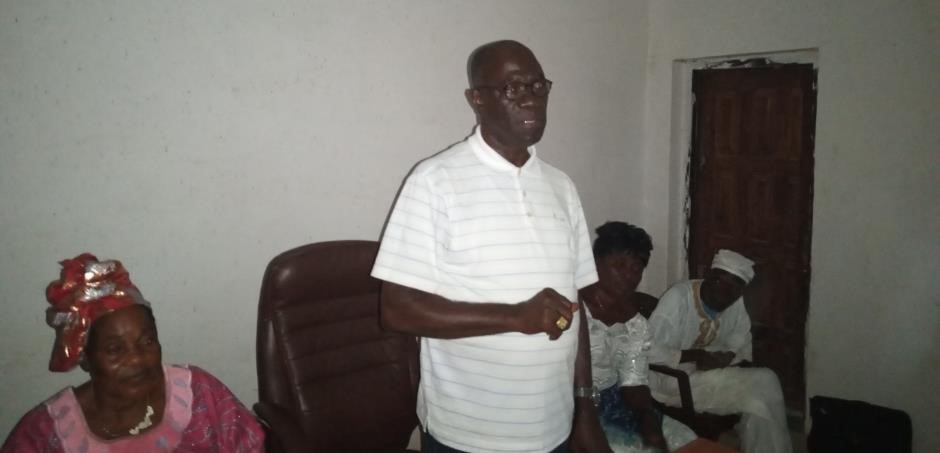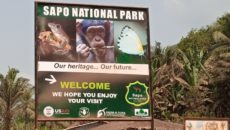GREENVILLE, Sinoe – Sinoe’s Sen. Milton Teahjay says he wants national and international partners to provide alternative livelihood opportunities for forest-dependent communities across Liberia.
Teahjay sounded out this call in Greenville during the official launch of the “Forest Blessings” radio program by the West African Biodiversity and Climate Change, funded by USAID. The program is being run on Liberty Radio in Greenville, as well as other community radio stations in Liberia, Sierra Leone, Guinea, and Ivory Coast.
WA BiCC is a five-year initiative that aims to improve conservation across West Africa. WA BiCC does this through building institutional capacity in combatting wildlife trafficking, increasing coastal resilience to climate change, and reducing deforestation, forest degradation, and biodiversity loss.
“I want to take this time to extend special thanks to WA BiCC and the American government for this unique program,” Teahjay said. “It will help our people to understand the importance of their community forests; but again, I want to call on them to at least form another idea in helping to do other things that will develop and improve their lives, apart from engaging the forest for survival.”
The Sinoe senator said he strongly believes that finding livelihood alternatives for forest dependents is the key to promoting forest conservation.
The WA BiCC communication officer in Liberia, Darius Barrolle, told The Bush Chicken that the object of the project is to address threats to the Sapo National Park, Liberia’s largest protected rainforest. He noted the need to identify and implement innovative biodiversity and management models that are environmentally and economically sustainable in the long-term.
Barolle said WA BiCC’s goal is to promote innovative collaborative management of the Sapo National Park between Liberia and Côte D’Ivoire in ways that strengthen forest and biodiversity conservation and empower the local communities to effectively manage their resources and improve their livelihoods.
Barolle said USAID had funded the WA BiCC program to issue a grant to Fauna and Flora International to implement programs that contribute to “reducing adverse impacts on the forest and also to promote learning and sharing of inspiring knowledge, attitudes, and best practices that strengthen local interventions and/or enhance national and regional policies.”
Established in 1983, Sapo National Park is Liberia’s oldest and largest protected area, with a size of 180,365 hectares. The park is located within the Upper Guinea Forest Ecosystem and contains mostly old-growth tropical rainforest.
Located within three counties, the national park is surrounded by approximately 70 villages and finds itself threatened by forest degradation and habitat loss that results from agricultural encroachment, illegal bushmeat hunting, and expansion for subsistence and commercial purposes like artisanal mining, forest commodity plantations, and commercial logging.
Featured photo by Teahwleh Clarke Geeplay



